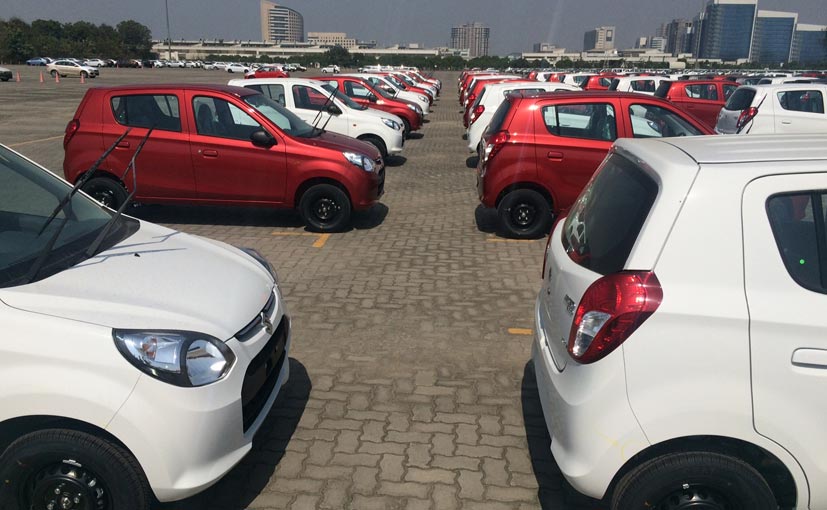
With production exceeding 3 million units, the Maruti Suzuki Alto has gone past the legendary 800 to become the company’s highest volumes model ever – and in turn India’s highest too. The humble Alto has seen quite a journey – and of course has reached almost every production and sales milestone faster than its predecessor.
“In an era when the competition was certain and liberalisation was peaking, we had to bring in new products. We brought in the Baleno (sedan), the Wagon-R and the Alto. It was then decided that ‘Alto’ is a global brand and that it should be established as a brand in India. That was the thought right from the inception.” says C V Raman, Executive Director-Engineering, (and the man in charge of R&D) Maruti Suzuki India.

2000 Maruti Suzuki Alto
When it was launched in 2000, the Alto was seen as a premium offering, as in many ways it was a replacement for the very popular Zen. True to Maruti Suzuki’s India strategy though, the Zen wasn’t phased out but the Alto drove in alongside it. Maruti Suzuki offered the Alto in two variants – the 796cc LX and the 1100 cc VX – that had the more powerful Wagon R engine, and better interiors. By 2001 Hyundai had upped the ante with power steering on the Santro, and the Alto (along with several Maruti models) also went the power steering way – adding an ‘i’ to the variant names – hence we got LXi and VXi.
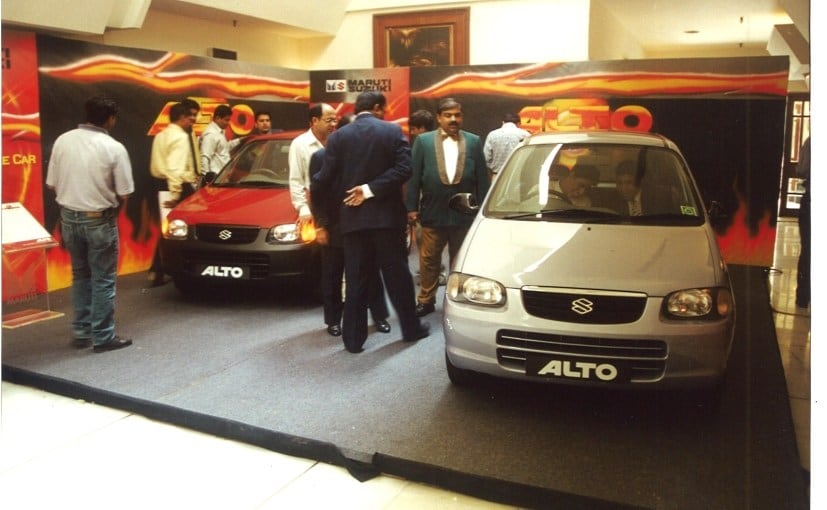
By late 2003, it was evident that Maruti aimed to take the Alto down the 800 road, when it launched the no frills, non-AC variant and also dropped prices of the range by over 20,000. Raman says that the internal plan was to always drive the Alto into a similar entry hatch positioning as the M800. He says, “When we started, the Alto’s import content was very high. Then we did value engineering – that is improving the value for the customer. And we were able to introduce the minor change and once the minor change came the volumes shot up. We were almost at 2 lakh vehicles a year from then onwards.”
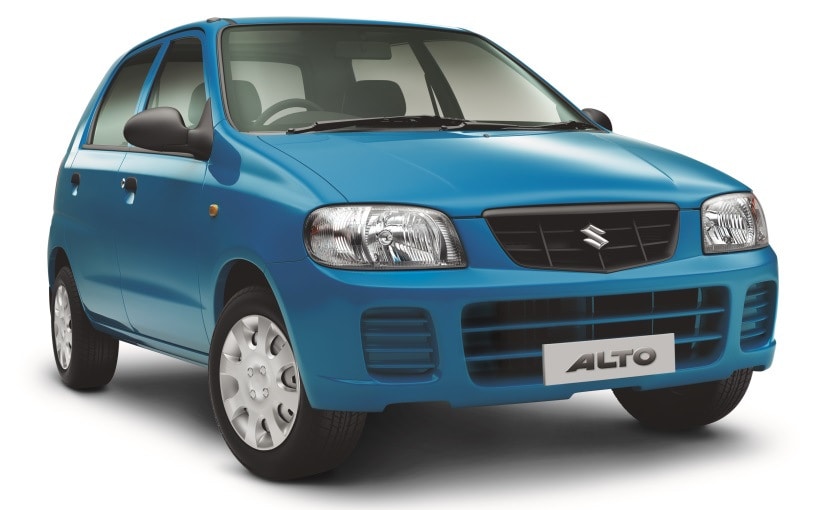
The Maruti Suzuki Alto received its first facelift in 2005
The Alto remains India’s largest selling car by volume for over a decade. It has also notched up other firsts like being the first car to achieve over 2,00,000 unit sales in a single year – in 2006 – a figure it hasn’t dropped below for over a decade now (it has already sold 220,035 units until January 2016 of the on-going fiscal).

New Maruti Suzuki Alto Production Line
Soon after, the ageing 800 started to go into partial retirement mode (even though that formally happened much later in January 2014). Since then, the Alto has been the volumes hero for Maruti Suzuki. In February 2008 the Alto crossed the 1 million units production mark, and followed it up with a domestic sales milestone of the same number in November of the same year. The strength of the Alto nameplate allowed Maruti to relaunch a powerful engine variant when it drove in with the K10, although with the 998cc K-Series engine, unlike the erstwhile 1100c.
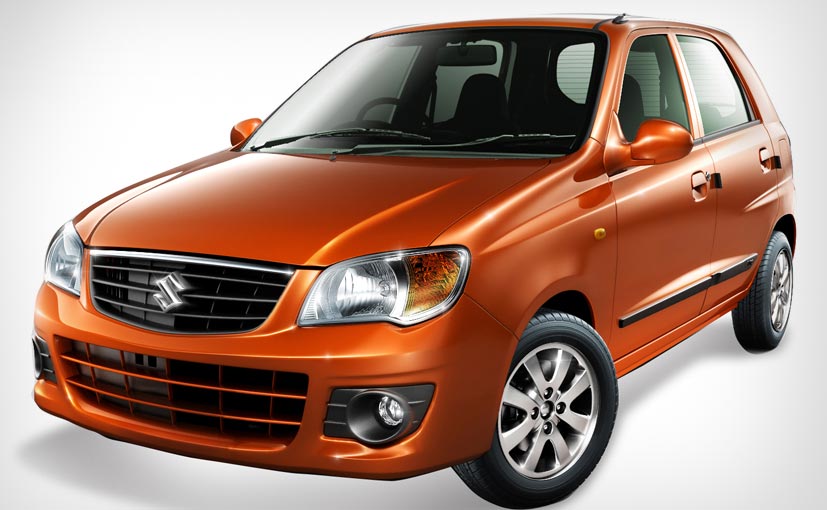
First Generation Maruti Suzuki Alto K10
The K10 launch accelerated the story, even as rivals like the Hyundai Eon and subsequently the Datsun Go tried to chip away at the massive market share the Alto had gained. All of this has meant the brand and the car remained more than relevant and held volumes, in fact increasing them to a peak of 346,840 units in 2010-11. The following year too it sold over 3 lakh units at 308,288 units. This helps explain how the first million took 8 years, while it has done twice that number in the following 8. The second million came in 2013, which means the 3rd million is the fastest – reflecting not just the growth in the Indian car market, but also the customer’s blind faith in the ‘Alto’ name.

2013 Maruti Suzuki Alto 800
In late 2012 we got the massive and much-needed makeover on the Alto 800, almost enough to warrant the ‘new generation’ tag. C V Raman told me that the idea was to address the evolved requirement of the Indian customer for an entry car into the Alto 800. “(We needed to) make a vehicle which was just 3.4 metres, 800cc. Give the customer all those things which he requires in terms of design and performance and comfort; as these were the 3 requisites the customer was looking for in the entry level segment. And then top it up with fuel efficiency. We achieved a fuel efficiency figure of 22.4 km/l. That was the benchmark at that point in time. That gave better cost of ownership to the customer.”
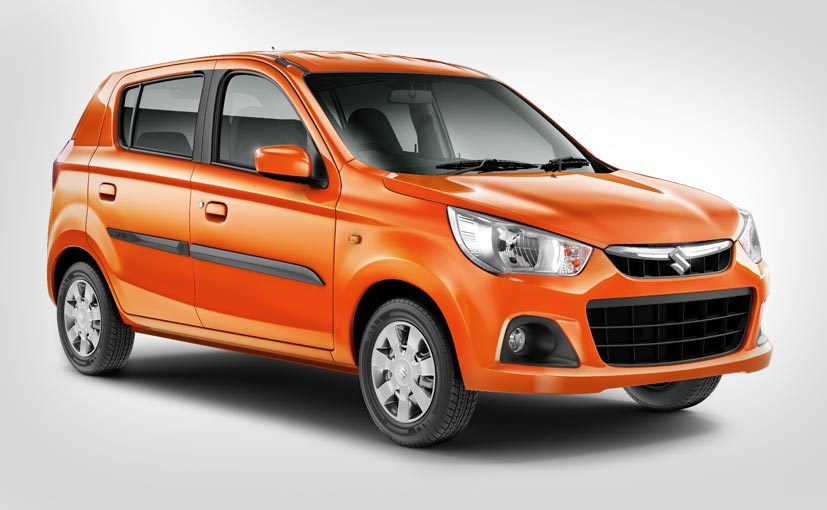
New-Look Maruti Suzuki Alto K10
The new look Alto 800 won the NDTV Car and Bike Entry Hatchback Award in 2013 – which validated the company’s claim on how much work was carried out to alter the vehicle, despite maintaining the same platform. The Alto K10 also finally went under the scalpel two years later, with similar rejuvenated looks and the very important addition of the automated manual transmission variant.
The Alto has seen exports of 280,000 units from India. Suzuki Japan has sold over 5 million Alto nameplate cars in Japan alone. As Maruti Suzuki shifts into a new gear with a more modern and futuristic vehicle line-up, the Alto will continue to be the backbone of its volumes strategy. Expect more value addition on the current car before a full model replacement that would be expected by the 2018-19 fiscal year. Given the significance of the Alto in Maruti Suzuki’s annual sales, C V Raman – the man in charge of delivering that future model has this to say, “This is a very important number as far as the whole Maruti portfolio is concerned, so we need to ensure how we protect it. We will have strategies going forward to ensure that we continue to give that value to the customer and retain our leadership in the entry level.” And how much would rivals like the now successful Renault Kwid affect what Maruti Suzuki does with the Alto in the future? Raman says the next Alto will take into account policy changes as well as customer requirement – so factors like crash worthiness, BS VI emissions, et al will be a given on the next products. And then there is the attractive pricing too – “For us the price value equation is very important in the entry level and – the customer today in the entry level is evolving, (and) demands more. How to provide that value is the specific research going forward.”
[“source-auto.ndtv”]